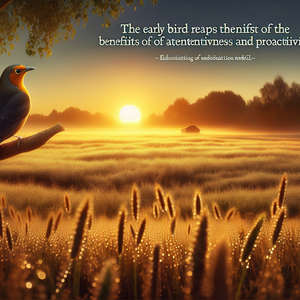Living Rich on Less: The $30 an Hour Challenge

The $30 an hour challenge is more than a mere budgeting tool; it is a transformative journey that encourages participants to reassess their financial habits. By committing to a month-long challenge, individuals are prompted to prioritize their spending, set clear financial goals, and develop a mindful approach to consumption. The exercise often leads to a newfound appreciation for both money and the resources that surround them.
Creative Strategies for Saving Money
A standout feature of the challenge is the ingenuity it inspires. Participants frequently report discovering innovative ways to save money that they had previously overlooked. Below are some effective strategies employed by challenge participants:
Meal Planning and Cooking at Home
Dining out can significantly impact a budget, leading many participants to focus on meal planning and home-cooked meals. By crafting weekly menus and utilizing seasonal ingredients, individuals not only cut costs but also improve their health. For example, one participant shared their success in preparing a week's worth of meals for just $50 by shopping at local farmers' markets and relying on bulk ingredients. This not only saved money but also fostered a connection to local agriculture.
Exploring Free Entertainment
Entertainment expenses can quickly accumulate, but participants often found a myriad of free or low-cost activities in their communities. From local art fairs and outdoor movies to hiking trails and public library events, individuals discovered ways to enjoy their free time without breaking the bank. One participant recounted organizing potluck dinners with friends, enriching their social lives while keeping expenses low. Such activities fostered community spirit and creativity, proving that enjoyment can thrive on minimal spending.
Thrift Shopping and Upcycling
In an age of sustainability, thrift shopping emerged as a popular option among participants. Many turned to second-hand stores for clothing and home goods, while others embraced upcycling—transforming old items into something new and unique. One participant proudly showcased their project of converting an old wooden dresser into a stylish media console, highlighting the potential for creativity and resourcefulness in everyday life.
Building a Supportive Community
A significant benefit of the $30 an hour challenge is the community it cultivates. Participants often share their experiences, challenges, and successes, creating a supportive network that fosters accountability and motivation. Online forums and social media groups have sprung up, where individuals can exchange tips, recipes, and personal stories. This sense of belonging reinforces the notion that living richly on less is not an isolated journey but a collective endeavor, empowering participants to thrive together.
The Emotional Impact of Budgeting
Beyond the tangible financial implications, participants noted profound emotional benefits from the challenge. Many discovered that simplifying their lives led to increased happiness and fulfillment. By focusing on what truly matters—relationships, experiences, and personal growth—they found that living within their means did not equate to deprivation but rather to the freedom of choice and creativity. Shifting their mindsets about money allowed them to appreciate life’s simple pleasures more deeply.
The $30 an hour challenge serves as a powerful reminder that financial constraints can ignite creativity and foster a deeper appreciation for life's simple joys. Through meal planning, exploring free entertainment, and engaging in community activities, participants have demonstrated that it is indeed possible to live richly on less. As living costs continue to rise, embracing challenges like this can empower individuals to take control of their finances, cultivate meaningful experiences, and redefine what it truly means to live well. Whether you're facing financial pressures or seeking a more mindful lifestyle, the insights gained from the $30 an hour challenge can inspire you to find joy in simplicity and richness in experience. Ultimately, the challenge highlights that a fulfilling life is not determined by monetary wealth but by the richness of experiences and relationships we cultivate along the way.
Financial Wellness Coach
Nonprofits, community organizations, private financial advisory firms
Core Responsibilities
Guide clients in creating personalized budgets and financial plans that align with their income and financial goals.
Educate individuals on effective money management strategies, including saving, investing, and debt reduction.
Facilitate workshops or one-on-one sessions to promote financial literacy and empowerment.
Required Skills
Strong understanding of personal finance, budgeting techniques, and investment strategies.
Excellent communication and interpersonal skills to build rapport with clients.
Certification in financial planning or coaching (e.g., CFP, AFC) is often preferred.
Community Engagement Coordinator
Local government agencies, nonprofit organizations, community development corporations
Core Responsibilities
Develop and implement community programs that promote financial literacy and resource sharing among residents.
Collaborate with local organizations to create events that foster community connections and support.
Collect and analyze feedback to continuously improve community offerings and engagement strategies.
Required Skills
Strong organizational and project management skills to coordinate various community initiatives.
Ability to communicate effectively with diverse populations and build partnerships.
Experience in community outreach or event planning is advantageous.
Sustainable Living Educator
Environmental nonprofits, community colleges, cooperative extension services
Core Responsibilities
Teach workshops on sustainable practices such as upcycling, meal planning, and resource conservation.
Develop educational materials and programs that promote eco-friendly lifestyles and financial savings.
Partner with local schools and community groups to raise awareness about sustainability and budgeting.
Required Skills
Knowledge of sustainable living practices and environmental education principles.
Strong presentation and teaching skills to engage diverse audiences.
Experience in curriculum development or community education is a plus.
Personal Finance Writer/Blogger
Financial publications, personal finance blogs, online education platforms
Core Responsibilities
Create engaging content that educates readers on budgeting, saving, and frugal living strategies.
Conduct research on financial topics to provide accurate and relevant information to the audience.
Build an online community through social media and interactive content like webinars or Q&A sessions.
Required Skills
Exceptional writing and editing skills, with a knack for simplifying complex financial concepts.
Familiarity with SEO and digital marketing strategies to increase online visibility.
Experience in personal finance or journalism is preferred.
Budgeting Software Developer
Tech startups, established software companies, financial institutions
Core Responsibilities
Design and develop user-friendly budgeting applications that help users manage their finances effectively.
Conduct user testing and gather feedback to enhance the functionality and usability of the software.
Collaborate with financial experts to ensure the app provides accurate budgeting tools and resources.
Required Skills
Proficiency in programming languages such as Python, Java, or JavaScript, along with experience in app development.
Strong problem-solving skills and a user-centric approach to software design.
Knowledge of financial principles and budgeting practices is beneficial.


